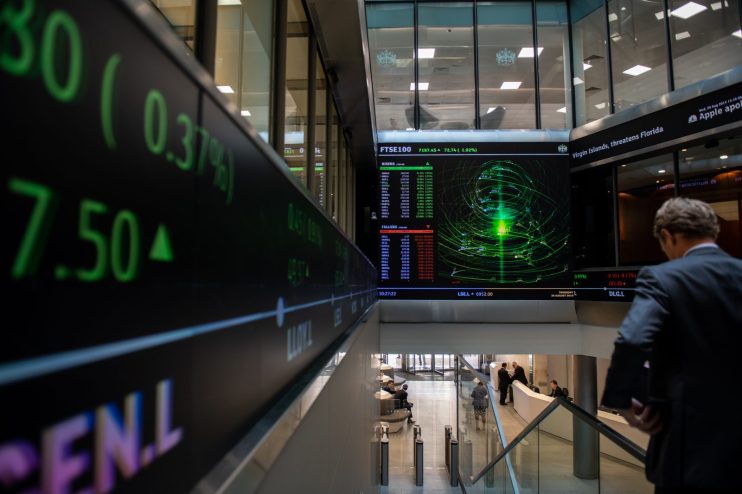FTSE 100 heads for second-best month on record but still lags peers

Britain’s FTSE 100 stock index is on track for its second-best month in history as optimism about vaccines boosts unloved sectors such as financials and industrials that dominate the UK corporate landscape.
Yet the index is still well behind its global peers this year. Despite US markets and global stocks hitting record highs, the UK index is down around 16 per cent year to date.
The FTSE has stormed ahead this month, posting gains of 14.1 per cent so far after Moderna, Pfizer/Biontech and Astrazeneca/Oxford University revealed strong vaccine results. It stood at 6,369 points on Friday.
Investors have rushed towards stocks that have been battered by the pandemic, figuring a vaccine will heal the economy and bring damaged companies back to life. That has particularly benefited the FTSE, which is chock full of banks, oil firms and travel groups that the pandemic has hit hard.
The index’s monthly gains would be the best in 30 years, when the index gained 14.4 per cent in early 1989. A strong day’s trading on Monday could see November’s gains top the record charts.
It comes after the FTSE plunged 9.7 per cent in February and 13.8 per cent in March as coronavirus hit. After a recovery of sorts, it then shed 4.9 per cent in October amid second wave.
FTSE 100’s recovery ‘remarkable’
“The recovery in the FTSE 100 has been remarkable,” said IG chief analyst Chris Beauchamp in a note.
“An index that had spent all summer moving in a downward direction from its June high has managed to recoup months of losses in the space of about three weeks.
“The vaccine news has been the catalyst. The potential for an earlier than expected reopening of the global economy has given new life to several key sectors with big weightings, which has been enough to drive the overall index to its highest level in six months.”
However, the FTSE had a lacklustre week amid concerns about the direction of the economy over the winter. Brexit talks have also weighed on sentiment.
It is down around 16 per cent this year. Many indices – particularly in the US – rebounded strongly as central banks pumped money into the economy and investors snapped up big tech firms that were benefitting from the pandemic.
Yet the FTSE lacks those shiny tech names, making it a relative laggard. The US’s Nasdaq is up around 34 per cent for the year, for example, while the S&P 500 is 11 per cent higher.
Germany’s Dax is down around one per cent, while France’s CAC 40 is around seven per cent lower.